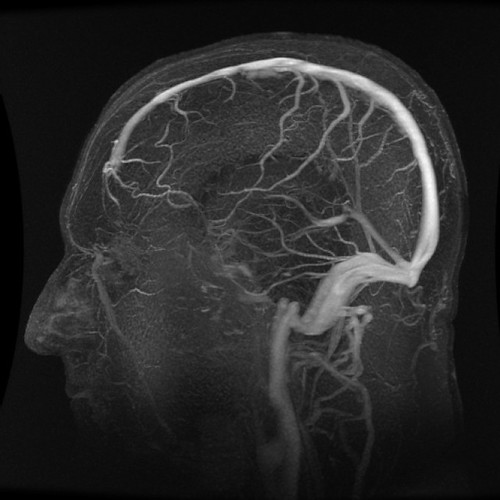In a conversation I had recently with some writing friends (friends that regularly write…and all of them mothers), I realized that they all were hoping to be discovered through blogging to land the book deal they wanted. It happened to a few people and they really hoped it would happen to them. They were really trying to make it work. It was frustrating for them. Some felt jealous, some bitter, some resolved to prove they could do it.
It’s really an out-of-date idea this blog to get a book deal thing. Maybe 7-10 years out-of-date, or more…though once in a while it works.
It’s like playing Powerball. It seems like you could win big, but you never do. It’s someone else.
There is a whole industry propping up this idea of landing a book deal too. Billions and billions of dollars are wrapped up in it. There are conferences, agents, tons of ebooks, paper books, articles, and whole websites to help you do blogging and writing better and to help you get published or build your platform that will interest and convince publishers. But the actual premise of all this is like the cassette tape. It worked once, and was considered normal, but now there are better options for your talents. Ones that feel more deeply meaningful too.

David Jones via Compfight
Over the next few months, I’m going to be going in depth about how you can actually make money writing.
It’s not by freelancing,
blogging and guest blogging,
selling website ads,
getting a book deal,
or self-publishing.
What could it possibly be then?
More on that soon!
It’s also about a entire shift in what success means.
The truth about the dream? The “prize at the bottom of the box” of all that hard work isn’t the big book deal. Many with book deals will tell you the true tales of woe dealing with editors and publishers expectations, exhausting obligations, and accountants who repeatedly want you to prove you are a legit option. Then, in the end, you are left to market the whole thing yourself anyway. This doesn’t apply if you’re famous or infamous though. (Plenty of people try to drum up controversy to get noticed and it works for a few people, but it’s not a winning idea and can turn you into a bit of a monster, it seems.)
Most authors don’t sell more than 1,000 books. Most. (My agent told me that.) When then do sell any, they get about a $1 or less per copy in royalties. Some dream!
That is a terrible return on all the hard work and the time invested. The other options are better ones. The prize you thought you wanted? It doesn’t exist. Not really. That’s the secret they won’t tell you. They can’t tell you that! The industry still needs you to believe that the prize is good enough and still available. The sooner you make a new path for yourself, the better off you are.
But, that doesn’t mean your dream of success should be over and your talents unused. Not at all.
It just takes adaptation and some cleverness. I’ve been consulting folks on how to make the shift, like I did. I’m going to open up the process for you too.
A few years ago, I saw the change was just ahead. Wicked. crazy. change. I did something no one would even think of doing. I had an ace in the hole, but I let my literary agent go. I don’t like to say “fired” because he did nothing to deserve it. I told him I needed to change direction and we amiably parted ways, and we mutually ended our contract.
He’s a good agent with an incredible track record getting deals and has represented some best-selling books. He turns down most who approach him. He was really really surprised, obviously. I went on instinct. I decided to not stick with convention and the known outcomes in the “formula” to be a successful author. The machine of publishing is deteriorating leviathan. The better fit for me is picking my own path and utilizing technology. I’ll be sharing how in the next weeks and months.
I decided I wasn’t going to wait to get picked. I didn’t like the game. I decided to not be a part of a failing system that was starting to heavily rely on celebrities (all with ghostwriters btw) or gimmicks to keep their publishing houses running. I wanted OUT.
The move seemed asinine, at least on paper. (At that time three of my writing friends had tried to get this agent’s interest and got shot down, and I was letting him go? HUH? Since then loads of others have been rejected too. I had him for the taking but I said “no thank you”.) Yet, it opened me up creatively to do my best work and find my own prize, not the phantom book deal carrot held out just out of reach by a whole industry propping up the slick myth.
It really was the day I went Pro. I’ll let you in on a few secrets I learned in the next few weeks and help you find a way to come into your own creatively as you let go of the false or shoddy promise of landing a “great book deal” or signing with great agent and making it big. That is so 90s.
Don’t get me wrong, authors sometimes get signed and blogging still helps get deals…rarely. But in the end of the whole process most authors are deeply unsatisfied or underwhelmed. Not just because they reap so little, but because they have so little control in the process, the machine of it. The good news is the gatekeepers don’t hold on the power as they once did, and technology has created new doors.
The book deal that seemed so amazing? I can buy her book for $2.99 at Ollie’s Bargain Outlet just 3-6 months later. (I do it all the time.) The system is busted, but the word isn’t getting out.
Stayed tuned for more. The gloves are coming off.




